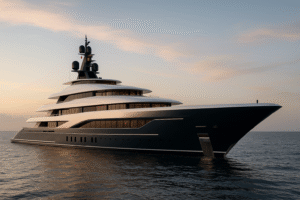In recent months, the luxury industry has experienced a wave of change driven by digital and technological innovation. The rise of “luxury digital experiences” is reshaping how affluent consumers interact with high-end brands, blending the exclusivity of in-store shopping with virtual convenience. Leading luxury brands, from fashion to real estate, are leveraging technologies like augmented reality (AR), virtual reality (VR), and artificial intelligence (AI) to offer immersive, customized experiences that resonate with the modern, tech-savvy customer.
The Digital Shift in Luxury Retail
Virtual try-on services and online consultations have become essential for many luxury brands, offering consumers personalized experiences without leaving home. Chanel, Gucci, and Louis Vuitton, for instance, have introduced VR-based runway shows and AR try-on features, allowing users to see how products look in real-time. Not only does this bring the exclusivity of luxury into a digital space, but it also aligns with sustainability goals by reducing the need for physical samples and returns.
AI-Driven Personalization
Artificial intelligence is also a key player, helping brands understand consumer preferences on a deeper level. Through AI-driven recommendations and customized interfaces, brands can now predict customer needs, offering product suggestions that feel highly personal. This aligns with the growing consumer expectation for exclusive and personalized luxury experiences that reflect individual tastes and lifestyles.
The Future of Digital Luxury Experiences
The digital evolution in luxury is not just a trend; it’s becoming a standard. As younger, digitally-native generations seek luxury experiences that match their online lifestyles, brands continue to innovate. From purchasing high-end real estate through virtual tours to enjoying digital fashion shows, the luxury landscape is expanding beyond traditional boundaries.





